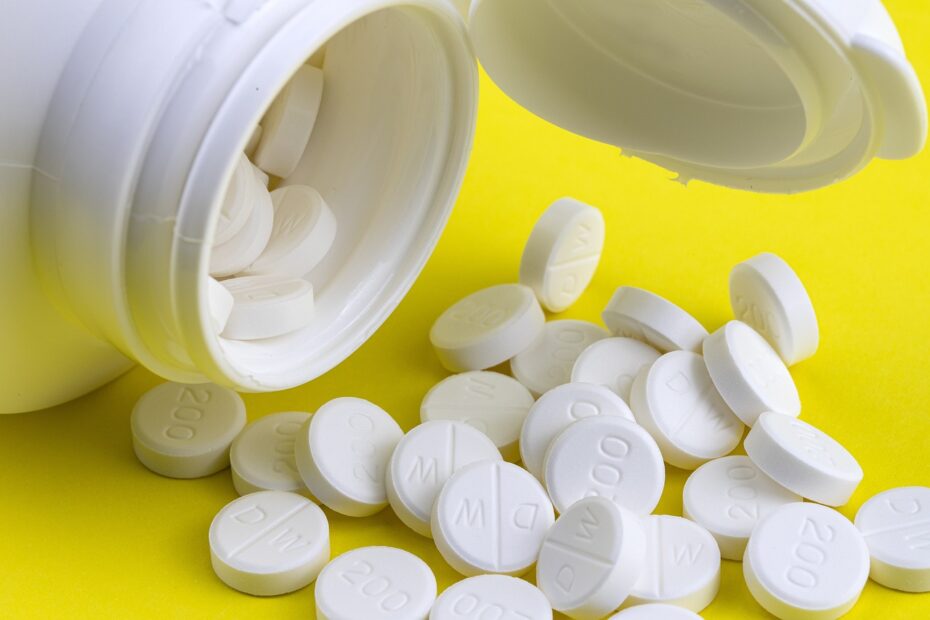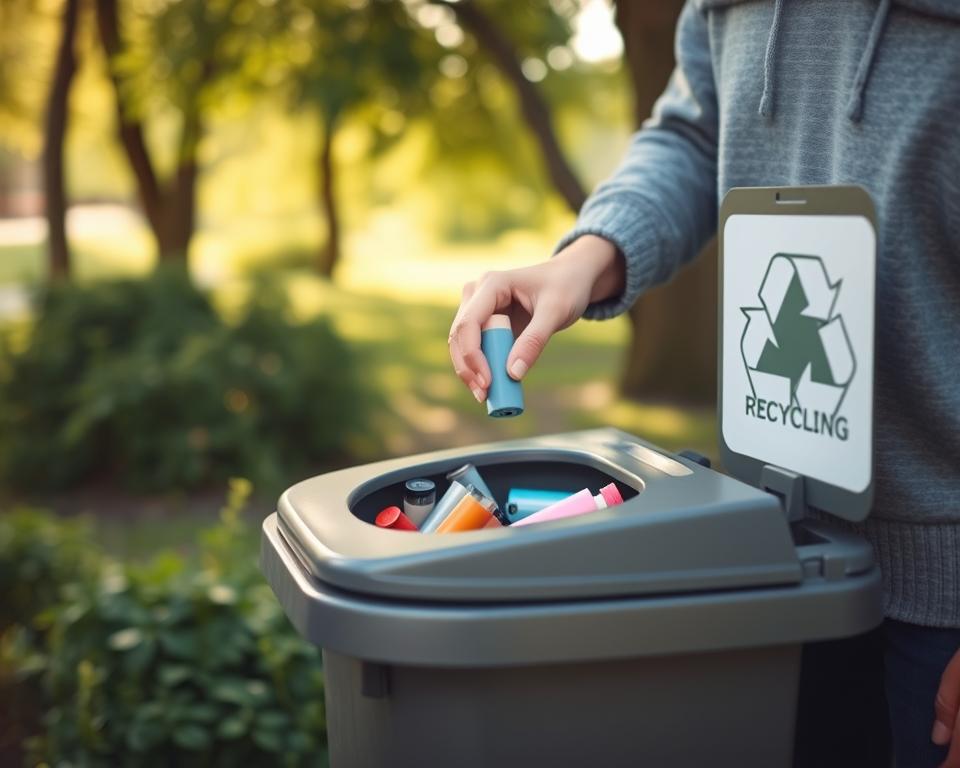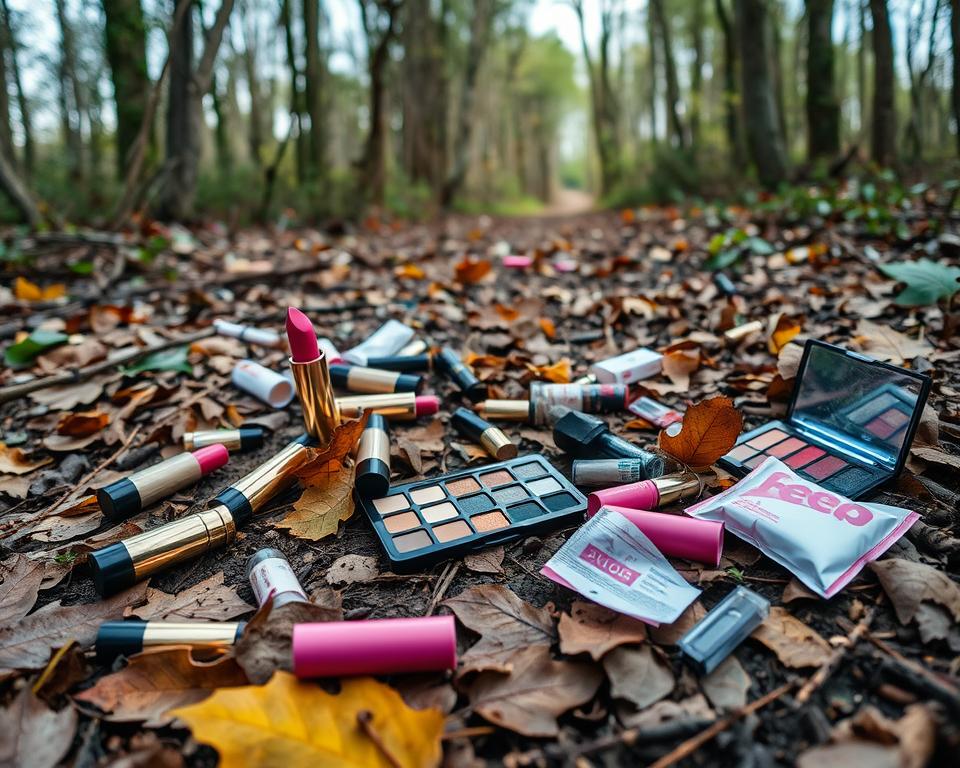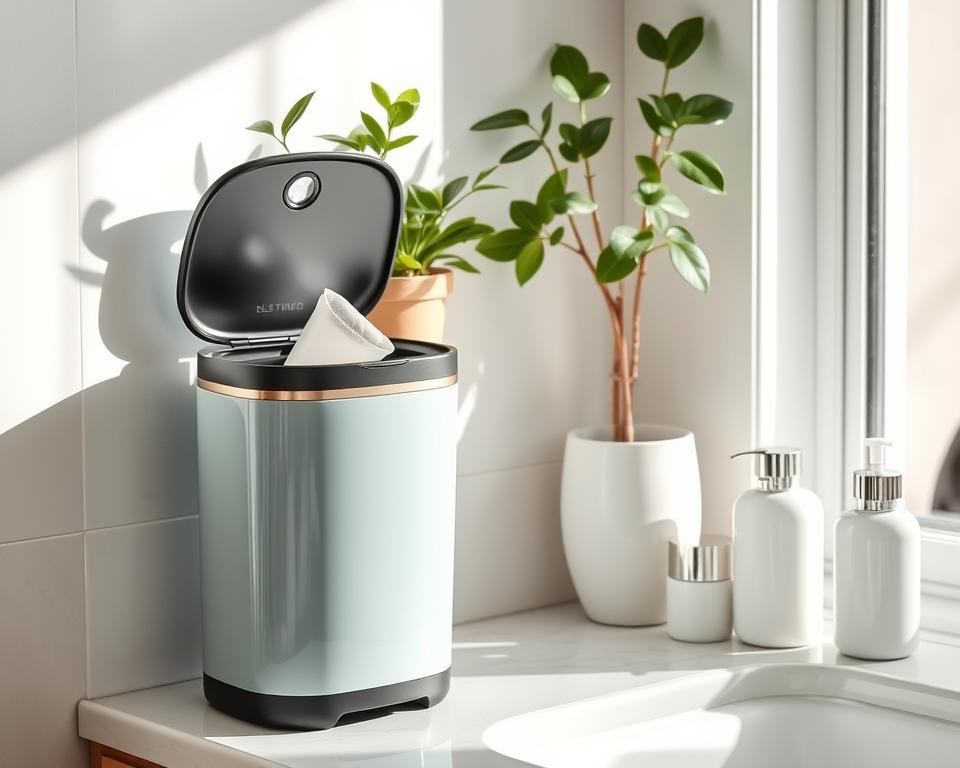Did you know that keeping expired or unwanted medicines can lead to taking the wrong ones? This is because they can get mixed up. It’s crucial to dispose of them properly to keep our homes and the environment safe. In this guide, we’ll show you how to safely get rid of your unused or expired tablets. This way, you can help protect public health and the planet.
Key Takeaways
- Storing expired or unwanted medicines can increase the risk of accidental poisoning, overdose, and misuse.
- Drug take-back programs and pharmacy drop-off options provide convenient and safe disposal methods.
- Certain medications must be flushed down the toilet, while others can be disposed of in the household trash.
- Improper disposal of medications can harm the environment by contaminating water sources.
- Pharmacists and local authorities can provide guidance on the best disposal methods for your specific medications.
Introduction to Proper Tablet Disposal
It’s important to dispose of tablets and medications the right way. Throwing them in the trash or flushing them down the toilet is not safe. This can harm children, pets, and even the environment.
Why Proper Disposal Matters
In the U.S., over 71,000 kids under 18 visit the emergency room each year for drug overdoses. Two-year-olds are especially at risk, with one in every 180 ending up in the ER. Proper disposal helps keep these drugs safe from misuse.
Potential Hazards of Improper Disposal
Medications thrown away can pollute our water and harm fish and other sea creatures. Most water treatment systems can’t remove these drugs. Also, 6.2 million Americans misuse prescription drugs, showing the need for secure disposal.
Knowing the dangers of bad disposal and taking the right steps can protect us and the planet. The next part will cover how to dispose of medications responsibly.
Drug Take-Back Programs
Getting rid of unused or expired meds is key for public health and the planet. Drug take-back programs make it easy and safe to dispose of unwanted tablets. These programs, run by local police, pharmacies, and groups, have special drop-off spots.
Finding Local Take-Back Locations
Finding a drug take-back site is easy. Many places hold collection events with police. Check your local government’s website or call your town hall for dates. Some pharmacies, like Walgreens, have drop-off kiosks open all the time.
Pharmacy Drop-Off Options
Drug take-back programs are also found at pharmacies. You can drop off meds at retail, hospital, clinic pharmacies, and police stations. They offer boxes, mail-back services, or other ways to dispose of meds at home.
| Drug Take-Back Option | Availability |
|---|---|
| Permanent Collection Sites | Offered year-round at select pharmacies and law enforcement facilities |
| Periodic Take-Back Events | Hosted by the DEA and local law enforcement agencies a few times per year |
| Medication Disposal Kiosks | Available at nearly 1,500 Walgreens pharmacies across 46 U.S. states |
Using these options helps stop drug misuse and protects the environment. It ensures meds are disposed of safely.
Disposing of tablets
When you can’t find a drug take-back program, there are safe ways to get rid of tablets. It’s important to dispose of them properly to avoid misuse or harm to the environment.
Flushing Approved Medications
The U.S. Food and Drug Administration (FDA) has a list of medicines you can flush down the toilet or sink. These are high-risk drugs that could be dangerous if taken by mistake. Always check the FDA’s Flush List before flushing any medication.
Disposing in Household Trash
Most medications, like tablets, capsules, or liquids, should be thrown away in the trash. Mix the medicine with something unappealing like dirt, cat litter, or used coffee grounds. Then, put it in a sealed container or bag and throw it away.
Some medicines, like opioid painkillers, need special care. Always follow the instructions on the packaging or ask a healthcare professional for the right way to dispose of them.
| Disposal Method | Recommendation |
|---|---|
| Drug Take-Back Programs | Preferred method when available |
| Flushing Approved Medications | Only for high-risk medications on the FDA Flush List |
| Disposing in Household Trash | Suitable for most medications, with proper mixing and sealing |
By using these safe disposal methods, you help stop medication misuse and protect the environment. Always talk to a healthcare professional or local authorities for advice on how to dispose of tablets and other medicines.
Flushing Approved Medications
The U.S. Food and Drug Administration (FDA) has a list of medications that can be safely flushed. This list is for when take-back programs are not available. It helps prevent dangers and harm to the environment from bad disposal.
FDA Flush List Guidelines
The FDA Flush List has 19 medications for flushing when take-back programs are not there. This includes strong painkillers like Oxycodone, Fentanyl, and Diazepam. Flushing these drugs quickly removes them from homes, lowering risks of misuse or pollution.
The FDA says to flush only when take-back programs are not an option. These programs, like local trash services, are the best way to get rid of unused meds.
If no take-back program is available, the FDA suggests mixing the medication with something unappealing. Like used coffee grounds or cat litter. This makes the drug less likely to be misused.
For any questions about disposing of medications, call the FDA at 212-305-4565.
Disposing in Household Trash
If there’s no take-back program and the drug isn’t on the FDA Flush List, throw it away. Make sure to prepare it right for safe disposal in household trash.
Step-by-Step Instructions
- Mix the medication with something unappealing, like kitty litter, used coffee grounds, or dirt.
- Put the mix in a sealed plastic bag or container to stop leaks.
- Hide the bag or container in the trash, making sure it’s not seen.
Handling Controlled Substances
Be extra careful when getting rid of controlled substances, like opioid painkillers or sedatives. They can be dangerous if misused.
- Crush or dissolve the drug in water, then mix it with something unappealing.
- Put the mix in a sealed plastic bag or container before throwing it away.
- Don’t keep controlled substances at home longer than you have to. This helps avoid misuse or accidental taking.
By following these steps, you can safely get rid of medications in the trash. This helps keep the environment clean and prevents misuse.
Disposing of Inhalers and Aerosols
It’s crucial to dispose of inhalers and aerosol products correctly. This is because they can harm the environment if not thrown away right. These items often have ingredients that are bad for the planet.
The Food and Drug Administration (FDA) says to follow the disposal instructions on the packaging. Stores like Walgreens and CVS might take these items for safe disposal. But, it depends on where you are.
If your local pharmacy doesn’t take inhalers, reach out to your local health department, police or fire department, or trash and recycling facilities. They might know how to safely get rid of them. Some places have special programs for disposing of these items in a green way.
Even though some worry about medicines in water, the FDA says it’s safe. Still, it’s key to dispose of all medicines, like inhalers and aerosols, properly. This helps keep our planet clean.
Environmental Concerns
Throwing away medications the wrong way can harm our environment. This includes flushing them down the drain or throwing them in the trash. It’s important to dispose of tablets responsibly to avoid harming our water and ecosystems.
Impact on Water Systems
Research shows that medicines can pollute our water. For example, a study found high levels of synthetic estrogen in fish. This is likely because of medicines in the water.
Drugs like acetaminophen and ciprofloxacin have been found in our waterways. The U.S. Geological Survey found antibiotics in groundwater, even in non-farm and city areas. This shows medicines are everywhere in our water, affecting fish and people.
The Maine Department of Environmental Protection says hundreds of pounds of medicines leak into our water every year. This shows we need better ways to get rid of medicines to keep our water clean.
| Substance | Concentration in Landfill Leachate |
|---|---|
| Acetaminophen | 117,000 ng/L |
| Ciprofloxacin | 269 ng/L |
| Cocaine | 57 ng/L |
The table shows how much medicine is in our water. It’s clear that not getting rid of medicines right can pollute our environment.
Not disposing of medicines properly can harm our environment, especially our water. By understanding the harm and using better disposal methods, we can protect our water and the life in it.
Conclusion
Safely getting rid of tablets is key to keeping our health and environment safe. By following the steps in this guide, you can make sure old or unused meds are thrown away right. This includes using medication disposal programs, flushing certain meds, or preparing them for trash.
Studies show we need better ways to handle meds that are no longer needed. Issues like not knowing how to dispose of them and antibiotic pollution in water are big problems. We must find safe ways to get rid of meds.
By focusing on safe disposal of tablets and other meds, we help the planet and keep our communities safe. Using safe disposal methods for expired or unused meds is a small step that makes a big difference.
FAQ
Why is proper disposal of unused, expired, or unwanted medications crucial?
Proper disposal of tablets is key to avoid accidents and misuse. Throwing them away or flushing them can harm the environment and wildlife. It also poses a risk to children and pets.
What are drug take-back programs and how can I utilize them?
Drug take-back programs are a safe way to get rid of unused meds. They are set up by local law enforcement, pharmacies, and community groups. You can find these programs in your area to safely dispose of your tablets.
What are the recommended methods for disposing of tablets when a drug take-back program is not available?
Without a take-back program, you have a few safe options. You can flush certain meds or dispose of them in the trash securely and responsibly.
Which medications can be safely flushed down the sink or toilet?
The FDA has a list of meds that are okay to flush when take-back options are scarce. This section will cover the FDA Flush List and when it’s okay to use this method.
How do I properly dispose of medications in the household trash?
If there’s no take-back program and your meds aren’t on the FDA Flush List, trash disposal is the next best step. This section will guide you on how to prepare and dispose of medications in the trash, including controlled substances.
How should I dispose of inhalers and other aerosol products used for respiratory conditions?
It’s important to dispose of inhalers and aerosol products for respiratory conditions properly. This section will explain the best ways to do so to protect the environment.
What are the potential environmental consequences of improper medication disposal?
Improper disposal of meds, like flushing them or throwing them in the trash, can harm the environment. This section will discuss the effects on water systems and ecosystems, stressing the need for responsible disposal.




